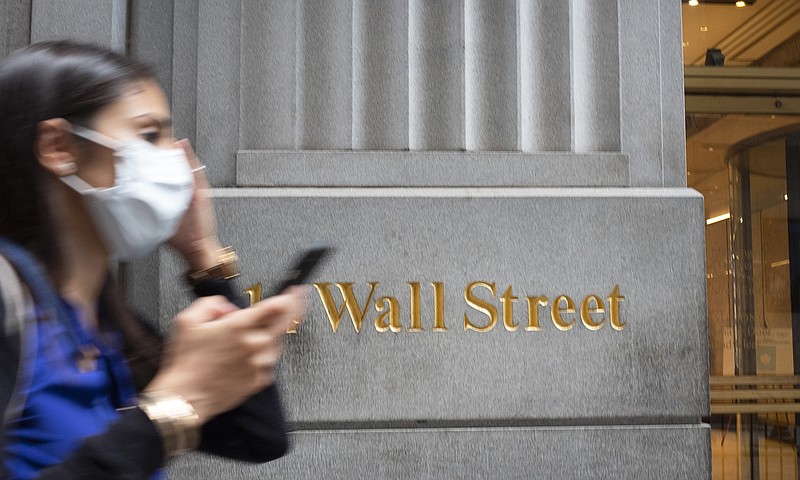Wall Street pumped the brakes on its recent rally Tuesday, as a late slide in big technology companies left stocks broadly lower, erasing an early gain.
The reversal left the S&P 500 with a 0.8% loss after having been up 0.6% earlier. The decline in big-name technology stocks such as Apple and Microsoft, plus losses in health care and communications stocks, outweighed gains in financial, industrial and energy companies. Tech stocks have far outpaced the rest of the market this year as investors bet they could still thrive in a stay-at-home economy.
The S&P 500 fell 26.78 points to 3,333.69. The Dow Jones Industrial Average dropped 104.53 points, or 0.4%, to 27,686.91. The Nasdaq composite lost 185.53 points, or 1.7%, to 10,782.82. The Russell 2000 index of small company stocks gave up 9.57 points, or 0.6%, to 1,575.10.
European and Asian markets closed broadly higher. Treasury yields rose, a sign that pessimism about the economy is easing. Oil prices fell.
[CORONAVIRUS: Click here for our complete coverage » arkansasonline.com/coronavirus]
The pullback ended the S&P 500's seven-day winning streak. Despite the sell-off, the benchmark index remains within 2% of the all-time high it reached in February, reflecting a stunning turnaround from a nearly 34% tumble in March when the coronavirus pandemic sent stocks into a nose dive.
Investors have grown more confident in recent weeks as some positive economic data is offered and as companies experience better-than-expected second-quarter results, suggesting corporate profits could be headed higher in the second half of this year and in 2021. Traders also are increasingly optimistic that the many pharmaceutical companies working on ways to treat covid-19 will deliver a working vaccine in the coming months.
"What is a risk worth taking is the assumption that a vaccine will be made available around year-end, and that this vaccine will help eliminate the virus in the coming year," said Sam Stovall, chief investment strategist at CFRA Research.
The stock market is on pace for its fifth month of gains in a row, even as the broader U.S. economy continues to struggle. While there have been some positive signs, including a larger-than-expected increase in hiring in July, the economy remains hobbled by high unemployment and an uneven reopening by businesses as the number of new confirmed coronavirus cases has increased in recent weeks.
Unprecedented actions by the Federal Reserve to stabilize markets this spring, including lowering interest rates and ramping up bond purchases, have made stocks attractive relative to other assets and given traders enough confidence to keep snapping up stocks.
Meanwhile, investors continue to keep an eye on Washington for a fresh lifeline for the U.S. economy. On Saturday, Trump issued executive orders to extend an expired benefit for unemployed workers, among other things, in response to a collapse of negotiations on Capitol Hill for another economic rescue bill. Critics said the moves did not go far enough to support the economy and questioned how they would work.
While talks between Democrats and Republicans on a new economic relief package appear to have stalled, investors are still optimistic the sides will reach an agreement.
"The markets do show that they believe something is going to get passed," said Tom Martin, senior portfolio manager at Globalt Investments.
The yield on the 10-year Treasury note rose to 0.64% from 0.57% late Monday, a big move.
Oil prices closed lower after being up earlier. Benchmark U.S. crude oil for September delivery fell 0.8% to settle at $41.61 per barrel. Brent crude oil for October delivery fell 1.1% to settle at $44.50 per barrel.
